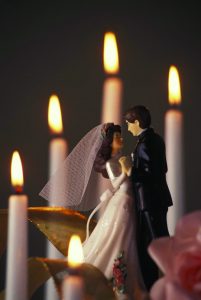
In 2012, Jack Phillips, a Colorado-based cake designer and the owner of Masterpiece Cakeshop, declined a request to make a same-sex wedding cake. Mr. Phillips refused because it conflicted with his religious beliefs that marriage should be between a man and woman. Following the denial of the request, Mr. Phillips offered to make the couple a cake for another occasion or sell any other baked goods he had available.
The same-sex couple filed charges of violating the Colorado Anti-Discrimination Act (CADA) against Mr. Phillips with the Colorado Civil Rights Commission. CADA extends protections to individuals against discrimination in a business that sells goods or offers services to the public. Initially, an administrative judge ordered that the cake shop create wedding cakes for same-sex couples. Mr. Phillips appealed the decision and, ultimately, the matter was brought before the U.S. Supreme Court.
There were several factors in Masterpiece Cakeshop that led to the Supreme Court’s ruling. These factors include:
- The Commission’s decision violated Mr. Phillips’ constitutional rights not to base laws on “hostility to religion.”
- Mr. Phillips’ claim that he was using his voice and artistic expression in his baking craft invoked a significant First Amendment speech component and implicates his “deep and sincere religious beliefs.”
- The Commission’s decision was not in line with the state’s obligation to religious neutrality.
- Objections based on religion or philosophical beliefs are, in some instances, protected forms of expression.
- The protections invoked under CADA have to be applied in a way that is neutral towards religious beliefs.
- The Commission was inconsistent in its ruling. While the Masterpiece Cakeshop case was pending, the Commission decided in three other matters that bakers acted lawfully when they refused to make cakes that demeaned LGBT individuals or same-sex marriage.
- The Commission was “hostile” towards Mr. Phillip’s religious beliefs.
While the Masterpiece Cakeshop decision has been decided, whether or not a business owner can invoke religious objections to refuse the sale of goods or services to LGBT individuals is yet to be determined.
The assertion of religious beliefs and discrimination are both very controversial and prominent issues in today’s business world. If you or your employee have been accused of discrimination after asserting your constitutional rights, it is important to contact an experienced business law attorney. The New York business lawyers at Blodnick, Fazio & Clark are experienced legal professionals who can advise you of your legal rights and provide guidance on invoking constitutional rights while conducting business. Our law firm will vigorously defend your interests against damaging legal action in court. For more information or to schedule a consultation, contact our Long Island business lawyers at (516) 280-7105 or (631) 669-6300.


